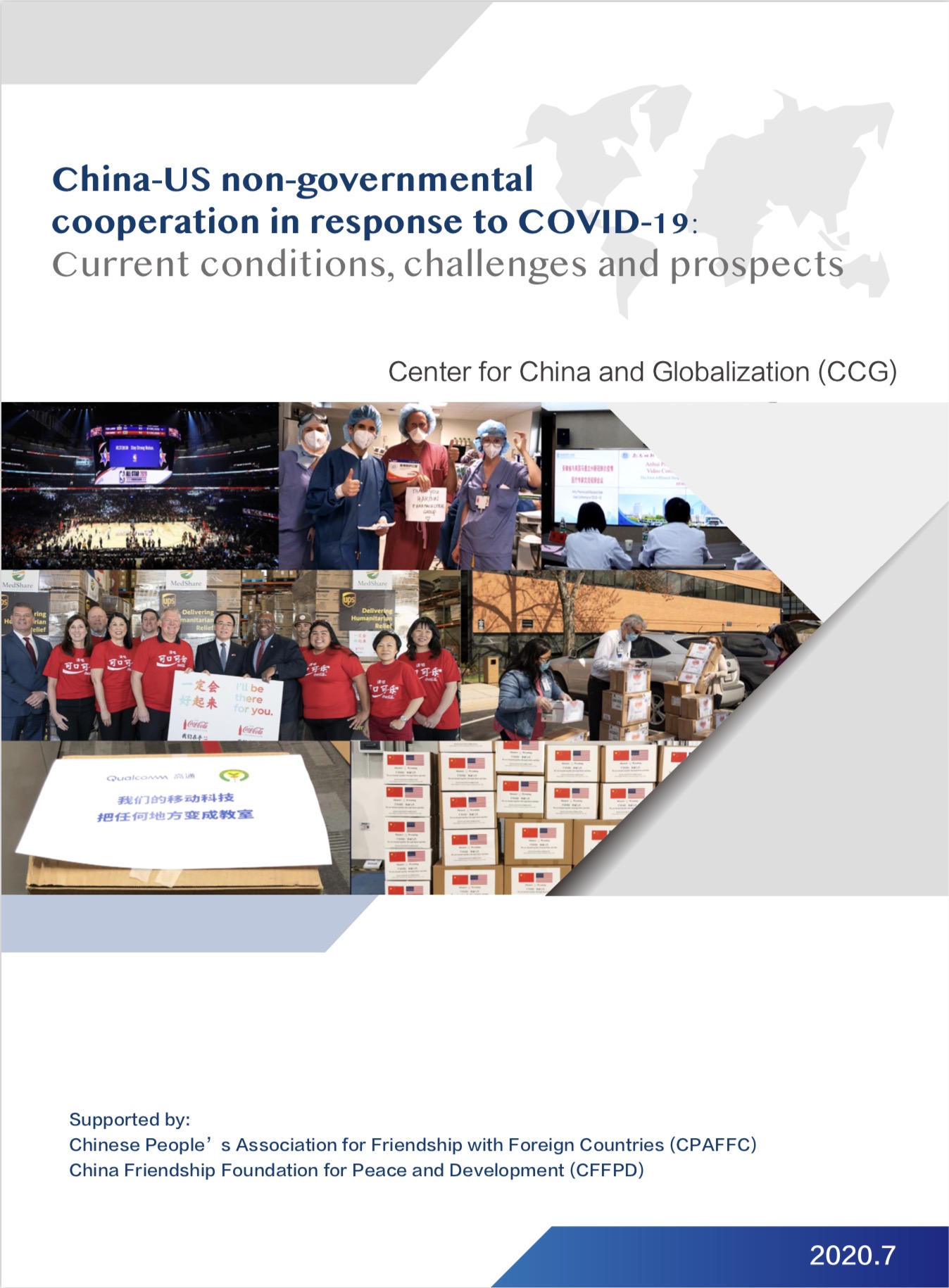US-China NGO cooperation essential in pandemic fight
July 13 , 2020
Despite strained diplomatic ties between China and the United States, nongovernmental cooperation in response to the coronavirus pandemic shows how shared ideals of humanitarianism and bonds built over four decades of engagement can transcend nationalist sentiment and politicization, analysis has shown.
COVID-19 has become the largest public health crisis since World War II and, as the two largest economies amid unprecedented globalization, anti-pandemic efforts by China and the US will have a crucial impact on world containment and economic recovery, a report on bilateral NGO cooperation showed.

The report, conducted by the Center for China and Globalization, a leading think tank based in Beijing, was released on July 6. It drew on continuous analysis of China-US NGO cooperation in response to COVID-19, summarizing anti-pandemic work and studying the willingness, challenges and reasons for the partnerships and putting forward practical suggestions to boost them during and after the pandemic, according to the think tank.
The report highlighted major characteristics of China-US NGO cooperation, including multi-actor partnerships, flexible, efficient and targeted assistance drawing on diverse resources, a “human and down-to-earth approach”, and injection of “positive energy” into governmental relations.
Donations received by China (excluding Hubei province) from sister states and related organizations in the US reached about 666,000 yuan ($95,000) by end of May, according to figures from the Chinese People’s Association for Friendship with Foreign Countries, a national organization engaged in people-to-people diplomacy which jointly supported the report.
Other donations included more than 171,000 masks, 1,300 items of protective clothing, nearly 900 goggles, 1,360 face masks and other related equipment valued at 200,000 yuan. Chinese provinces and cities also made large donations to US sister cities, including 2.11 million masks, more than 35,900 items of protective clothing, 136 thousand pairs of medical gloves and over 30,200 goggles.
Chinese and US chambers of commerce have played an important role in the fight against COVID-19 by purchasing and donating materials, encouraging enterprises to make donations and conducting research and evaluation on the impact of the pandemic.
By Feb 17, 103 US companies had donated money and materials to China totalling 538 million yuan, accounting for about one-quarter of all donations by foreign companies, figures from the Chinese Academy of Social Sciences show. The report also highlighted how, as the pandemic became increasingly severe in the US, Chinese enterprises subsequently ramped up their production, exporting more than 12 billion masks to the US, or nearly 40 masks for every US person.
In an analysis of the latest findings that brought together luminaries from the business community, healthcare and other sectors, Wang Huiyao, president of the think tank, said the report was the first of its kind, including in-depth surveys, interviews and more than 1,700 responses from Chinese and US people across a wide spectrum. The respondents expressed overwhelming support for the countries’ NGO cooperation amid the pandemic, and Wang said both sides can aim for greater ties to overcome the threat together.
Shen Xin, director-general of the Department of American Affairs at the Chinese People’s Association for Friendship with Foreign Countries, said the report was also a nod to those who have been working toward the building of bridges amid the pandemic. The stories and contributions of ordinary people give strength to China-US relations and the efforts should continue, he said.
Alan Beebe, president of the American Chamber of Commerce in China (AmCham), said it also worked very closely with local authorities in various parts of the country to help member companies resume work.
“Let’s not forget that COVID-19 doesn’t recognize politics, it doesn’t recognize borders. This is a matter of science. Unfortunately, we continue to see national politics entering the fray. We need our nongovernmental organizations to really focus on human lives, human health and economics, trying to minimize the impact this has had,” he said.
Liu Yuanli, professor and dean of the Peking Union School of Public Health, said public health and medical expertise have been extensively tapped by Chinese policymakers to deal with the pandemic but more needs to be done, especially in the US.
“Collaboration and dialogue among scientists are very important,” he said.
“Scientists in the United States nowadays are often sidestepped. We’re very disappointed to see politics is being tangled in this fight; we’re talking about human lives, not politics,” Liu said.
Dede Nickerson, producer and advisor at Huanxi Media Group, said NGOs have played a critical role in fighting COVID-19 from the very beginning and must continue to do so.
“The NGOs which are participating here — medical foundations, individuals, companies — have a really important obligation right now to do the work, communicate, share information and build programs,” she said.






